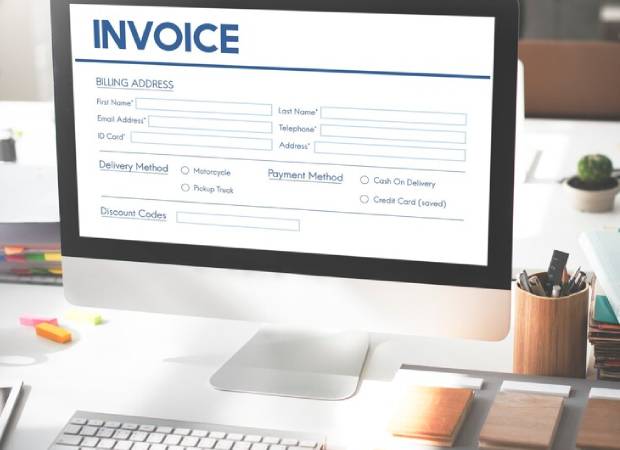
Comprehensive Contact Profiles: Keep all pertinent contact details readily available by storing names, addresses, phone numbers, and email addresses.
Group Listing: To ensure effective marketing and communication, group contacts for the purpose of sending targeted mailings.
Centralized Information: Company Name To simplify administration and enhance organization, access all contact details in one location.
Custom Fields: To improve data structure and retrieval, add custom fields to collect certain information pertinent to your business needs.
Individual and Company Leads: Add and manage both individual lead details and company leads, capturing all relevant information for each type.
Lead Import: Import leads from local systems via CSV or other file formats, making it easy to integrate data from various sources.
Lead Conversion: Convert leads to customers with a single click, seamlessly transitioning their information and interaction history to the customer management module.
Interaction Logs: Maintain detailed logs of all interactions with leads, including emails, calls, meetings, proposals, activities, and notes, ensuring a complete view of lead activity.
Automated Follow-ups: To guarantee prompt and regular communication with leads, set up automated follow-up tasks and reminders.


Centralized Information: Access all customer information, including purchase history, preferences, and billing details, in one place. Ensure all team members have up-to-date information for informed interactions.
Customer Interaction Logs: Maintain logs of all communications and interactions with customers for personalized service. Track emails, calls, meetings, and support tickets to build a comprehensive customer profile.
Invoice Details by Project:View invoice details associated with specific projects for each customer. Track billing information, payment status, and financial history related to individual projects to manage finances effectively.
Advanced Filtering:Efficiently locate and organize customer information with powerful filtering capabilities. Filter customers by customer name and ensure streamlined data management and quick retrieval of relevant information.
Custom Service Proposals: Create tailored proposals for custom services, addressing specific client needs and requirements. Include detailed descriptions, pricing, terms, and any other relevant information to provide a comprehensive and personalized proposal.
Dynamic Content: Incorporate comprehensive product/service descriptions, pricing details, terms, and multimedia content. Customize proposals to meet specific client needs and preferences, ensuring a personalized approach.
Electronic Signatures:Enable clients to sign proposals electronically, expediting the approval process and reducing paperwork.
Direct Sharing:Share proposals directly with clients from the application via a convenient link format. This feature simplifies distribution and enhances client experience by providing easy access to the proposal.


Project Organization: Organize and track different projects for each customer, describing the project details and setting its billing type.
Task Assignment: Assign tasks to multiple team members, ensuring collaborative efforts and efficient task management.
Deadlines and Progress Tracking: Set deadlines, monitor progress, and track how much time your team spends on each allocated task to ensure timely project completion.
Project Categorization: Organize and find projects based on their type or category, making it simple to stay organized and manage multiple projects simultaneously.
Billing and Financials: Link projects to their respective invoices and track financials associated with each project for better budget management.
Document Management: Store and manage project-related documents within the CRM, ensuring all important files are easily accessible and organized.
Communication Logs: Maintain logs of all communications related to each project, including emails, calls, and meetings, ensuring a complete view of project activity.
Invoice Creation:Generate professional invoices with detailed descriptions, terms, and conditions to ensure clear communication with clients.
Recurring Invoices: Automate billing procedures to cut down on errors and save time by setting up and managing recurring invoices for subscription-based services.
Payment tracking: Keep tabs on invoice statuses and payment histories, and remind people when payments are past due. Make sure that payments are collected on schedule, and enhance cash flow control.
Notes on the invoice: Personalize each invoice for a particular customer by adding notes that offer further context or crucial details.
Extensive Filtering: Find and arrange invoices fast by using extensive filtering options that can be applied to several parameters, including creation date, customer, status, and project. This guarantees effective administration and simple invoice data retrieval.


Access Control Based on Roles: To manage access to features and sensitive data, define roles and permissions. Make sure that organizational policies are followed and that data is secure.
Adaptable User Positions: Make unique roles that are suited to particular duties and responsibilities of the work. Depending on their jobs, give each team member the proper access privileges.
Granular Permissions: Provide granular permissions for different modules and data types so that users can only access the information they need to enhance security and lower risks.
Issue Reporting: When a problem is reported, open a ticket and follow its progress through to resolution. Assure prompt attention to and handling of client issues.
Ticket Assignment: Depending on availability and experience, assign tickets to the right support personnel. Boost efficiency by using automated workflows for the ticketing process.
Customer Support History: Keep track of every support conversation you have with a customer so you can deliver knowledgeable and consistent assistance. View previous tickets, cases closed, and correspondence records.


Integrated Email Client: Manage all business communications within the CRM without the need for external email clients. Send and receive emails directly from the CRM interface.
Email Templates: Use predefined templates for consistent and professional communication. Customize templates for different purposes, such as marketing, sales, and support.
Communication Tracking: Log all email interactions automatically to maintain a complete communication history. Link emails to relevant contacts, leads, or deals for easy reference.
Bulk Emailing: Send bulk emails to segmented contact lists for marketing campaigns, announcements, and newsletters.
Connect External Accounts: Integrate with external email services like Gmail and Outlook for seamless email management. Get access to every email you have from several accounts in one place.
Centralized Communication: Access and manage all emails from different accounts in one place. Ensure that all email interactions are logged and associated with relevant records.
Automatic Logging: Automatically log email interactions with contacts and leads to maintain a complete communication history. Keep track of all correspondence without manual effort.
Email Synchronization: To ensure that every team member has access to the most recent communication updates, synchronize emails in real time.


Data Import: Effortlessly bring information into your CRM system from local files. This feature allows you to browse and upload data, such as lists of new customers, directly into your CRM. With data import, you ensure that all relevant information is consolidated in one place, making it easier to manage and utilize.
Data Export: Seamlessly extract information from your CRM system and save it in a usable format. Whether you need to export customer lists to a spreadsheet for detailed analysis or to generate reports, this feature provides the flexibility to move data out of your CRM with ease.
Copyright @ 2026 || RIXO SYSTEM IT SOLUTIONS PRIVATE LIMITED